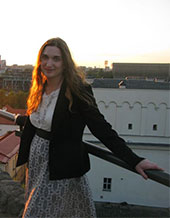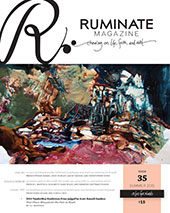With little fanfare, John Rosenwald and Lee Sharkey have stepped down as The Editors of Beloit Poetry Journal, roles they have held for nearly 25 years.
The publication has a long and romantic history – starting up at Beloit College, declaring its independence to defy the opinions of those who would censor it, and moving from Wisconsin to Maine while keeping its place-based name, establishing an international reputation for contemporary poetry. Writers speak of ‘not being ready yet’ to submit to BPJ, but someday, they will; or of being rejected, they smile – as though accomplishing the attempt was enough (and they always say, “I got the nicest rejection…”). Sigh. There just aren’t many such stories as those nowadays with the revolving door of publication start ups and closures, hundreds of lit mags to submit to, mass submission processes where writers don’t even know the publications they’ve sent work to.
Beloit Poetry Journal’s history is a good read and reminder of the literary journals that paved the way for so many others. And not just publications, but the people involved with them: editors, readers, writers, publishers. All of us.
Having known John and Lee (and Ann Arbor) for well over a decade now, I know this decision to pass on the publication was not an easy one. Please readers, understand, it was within their power to end Beloit Poetry Journal and call it a good run. Stepping away is hard enough, but handing over a publication with such an incredible reputation was not so much a decision as a process that took several years to come through. My appreciation and admiration to John and Lee and Ann for all of their hard work and dedication to writers AND readers. They never separated the importance of those two roles through the years they ran the journal, which is what makes it so well known today within the literary community.
I see John and Lee are still listed in the publication as “Senior Editors,” so I’m sure they will continue on in some advisory capacity. But I have also met the new editors: Melissa Crowe and Rachel Contreni Flynn. I know they will look to their Senior Editors in the years to come to guide them, but I already sense that they will have strength and creativity of their own to take the journal into the next great phase of its existence.
Melissa and Rachel provide a short note about the transition here. I like how in it, and elsewhere on the site, the role of Editor is referred to as handling the day-to-day operations of the journal. But as the literary community had come to know first David and Marion Stocking, then John Rosenwald, Lee Sharkey, and Ann Arbor as the face(s) of Beloit Poetry Journal – there is a great deal more responsibility to being the Editor of a journal than simply running the day-to-day. That day-to-day may actually feel like the work of it all, but much more than that is required to maintain a good literary publication. A great literary publication. One of the best.
The tangible, the day-to-day, that will be the easy part. It’s the other, the expectations, that become the true responsibility. The expectations of writers, of readers, of other editors, other publications, of teachers, of students, of the up-and-coming, of the established, of yourselves – most of all – of yourselves. Continually satisfy these changing expecations of the collective imagination, sustain this, and you will have a publication people know internationally. For decades. It has been done. It can be done.
My best to Melissa and Rachel. No cliches about shoes to fill. You have already done that or you wouldn’t be here already. Ten years from now, let’s look back, talk about where Beloit Poetry Journal has been and imagine where you see it going.
 Story’s second print issue is themed “The Monsters.” The double-sided issue feels like a literary preparation for Halloween, from Lincoln Michel’s horror-ified authors and Dorothy Tse’s “Woman Fish” on Side A, to the Tastoane masks of Corinne Lee’s essay “Kissing the Monster” on Side B.
Story’s second print issue is themed “The Monsters.” The double-sided issue feels like a literary preparation for Halloween, from Lincoln Michel’s horror-ified authors and Dorothy Tse’s “Woman Fish” on Side A, to the Tastoane masks of Corinne Lee’s essay “Kissing the Monster” on Side B.
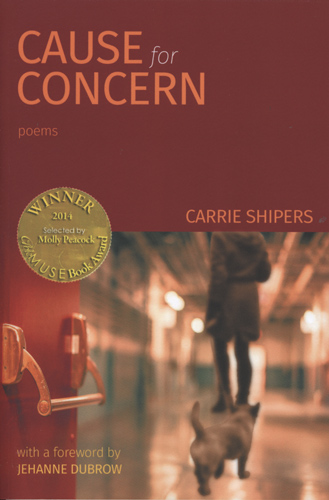 Winner of the 2014 Able Muse Book Award, Cause for Concern by Carrie Shipers is now available. From the publisher’s website: “Full of incisive meditations on frailties and fortitude often delivered with visceral honesty, Cause for Concern is spellbinding from start to finish.”
Winner of the 2014 Able Muse Book Award, Cause for Concern by Carrie Shipers is now available. From the publisher’s website: “Full of incisive meditations on frailties and fortitude often delivered with visceral honesty, Cause for Concern is spellbinding from start to finish.”  It’s a great time for fans of Yeats to plan a visit to Ireland as 2016 marks the centenary of
It’s a great time for fans of Yeats to plan a visit to Ireland as 2016 marks the centenary of 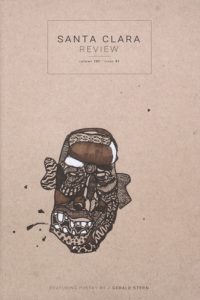
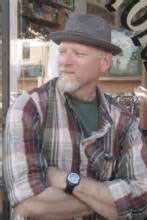 The 2015 annual issue of
The 2015 annual issue of 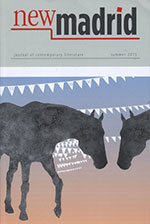 Happy 10th Anniversary to
Happy 10th Anniversary to 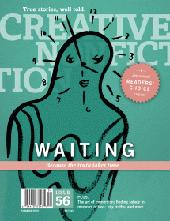 Issue 59 of
Issue 59 of 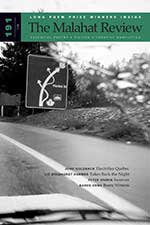
 Carissa Halston’s “Call It a Map” has been awarded the 2015
Carissa Halston’s “Call It a Map” has been awarded the 2015  1st place goes to Lauren Green [pictured] of New York, NY. She wins $1500 for “When We Hear Yellow” and her story will be published in Issue 97 of Glimmer Train Stories. This will be her first publication.
1st place goes to Lauren Green [pictured] of New York, NY. She wins $1500 for “When We Hear Yellow” and her story will be published in Issue 97 of Glimmer Train Stories. This will be her first publication.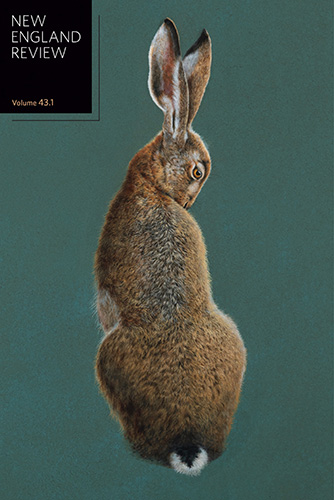 Editor Speer Morgan writes in his
Editor Speer Morgan writes in his 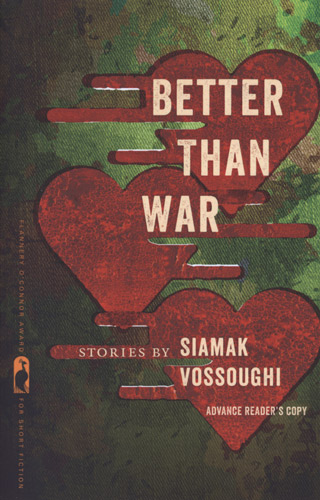 Since 1983, the University of Georgia Press has annualy held their
Since 1983, the University of Georgia Press has annualy held their 